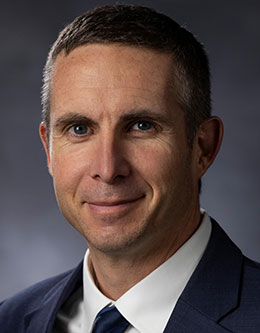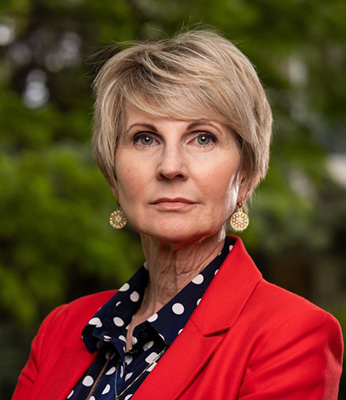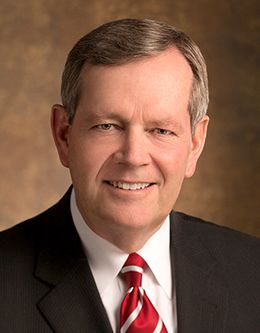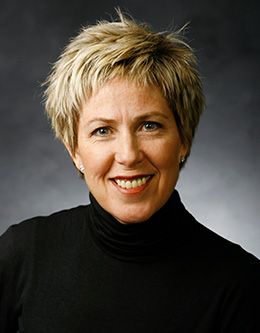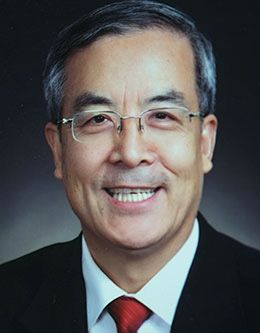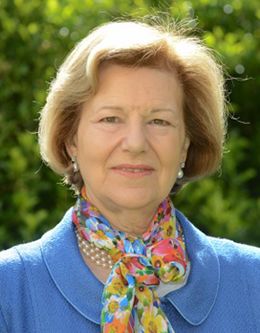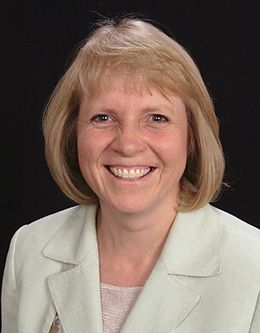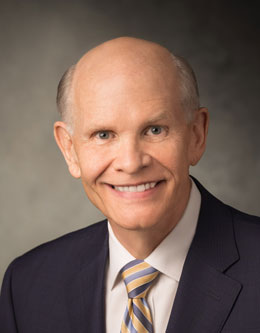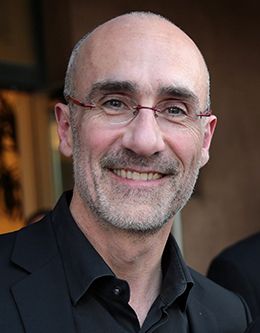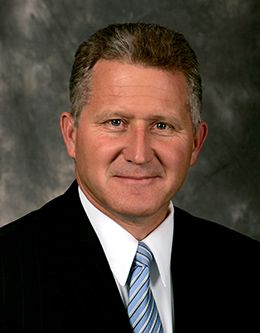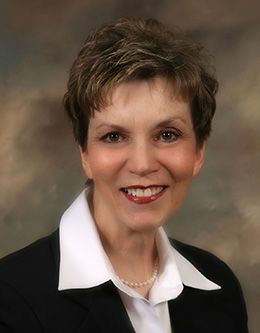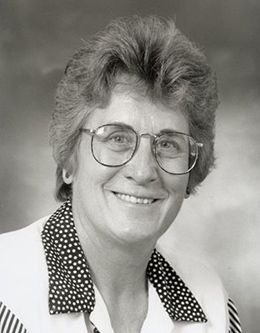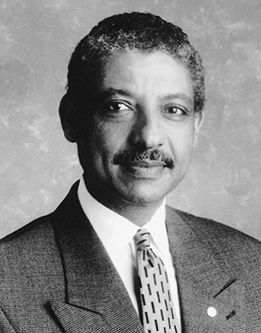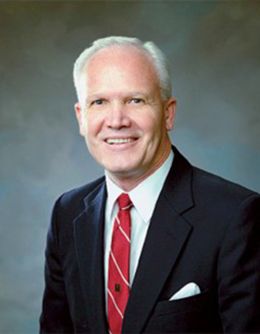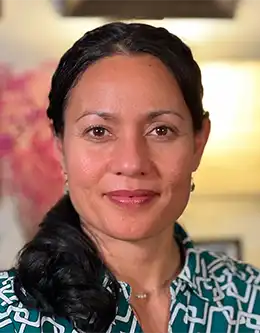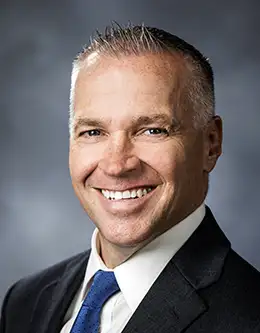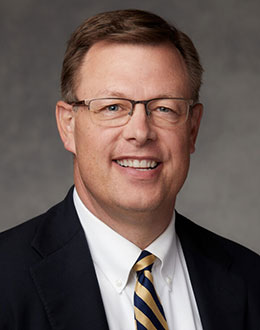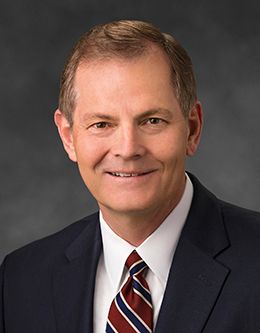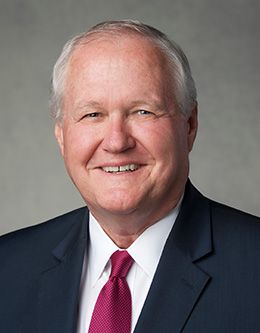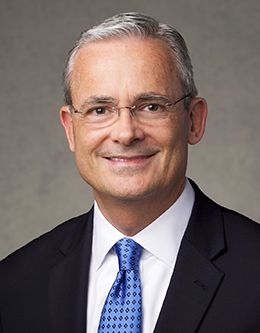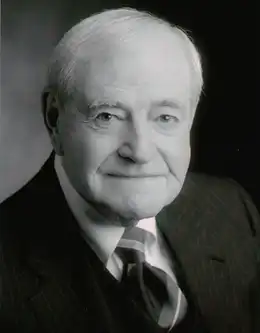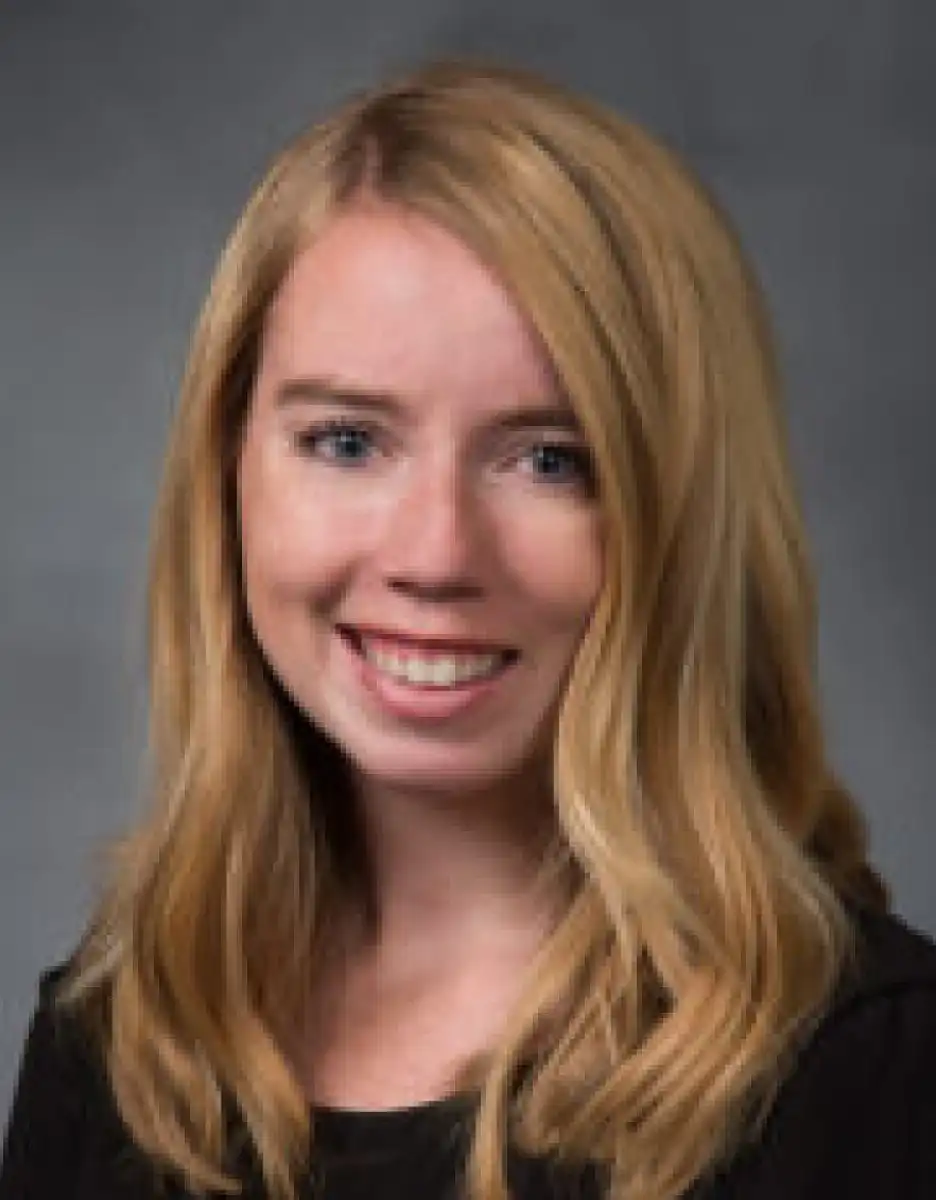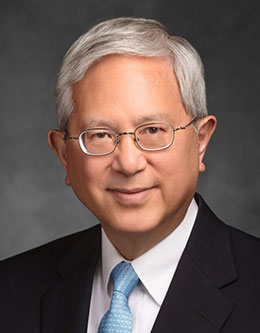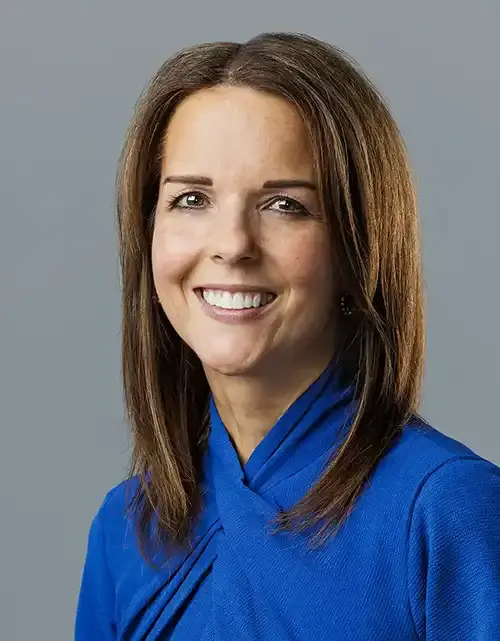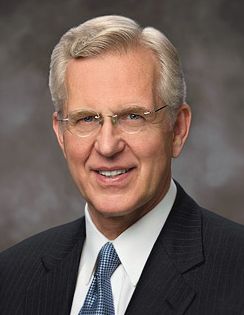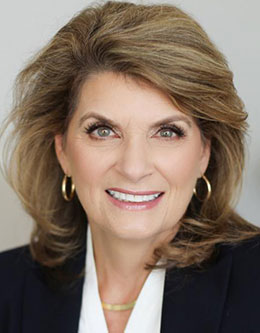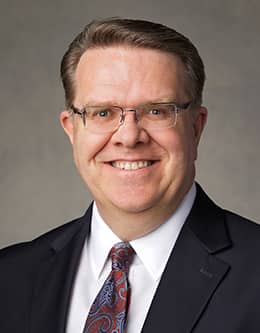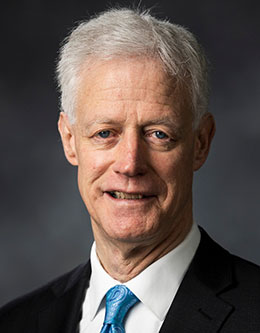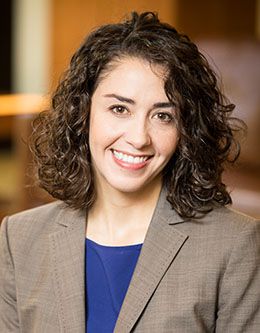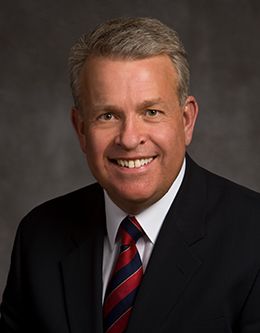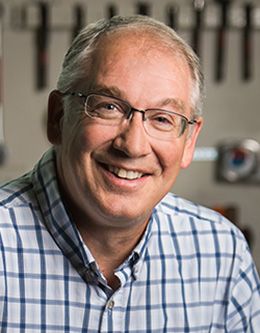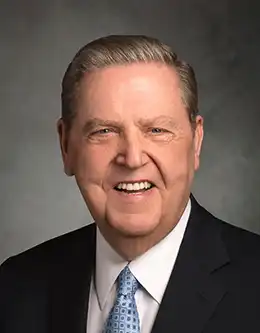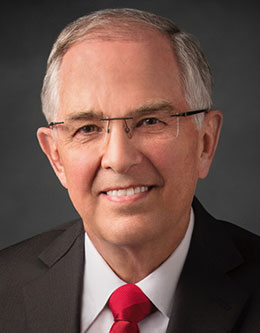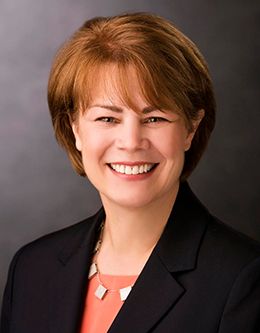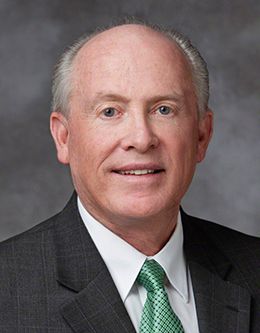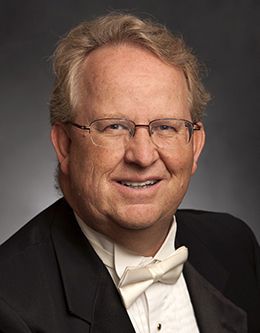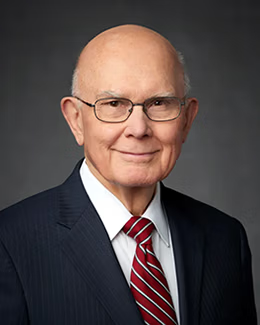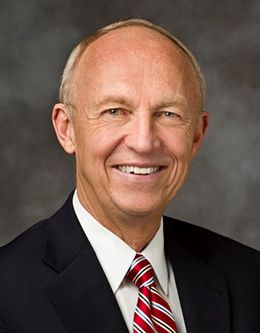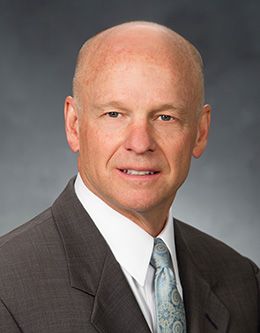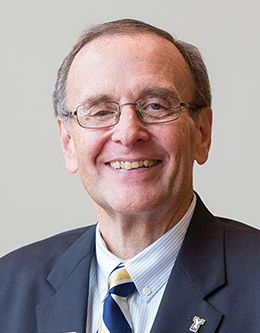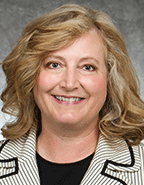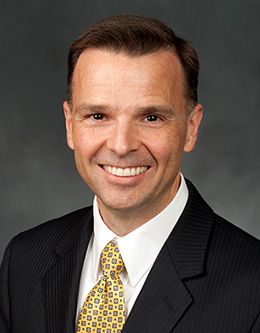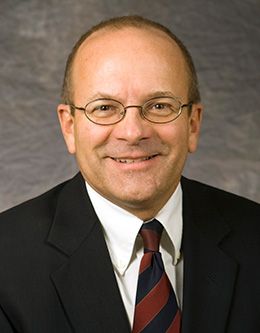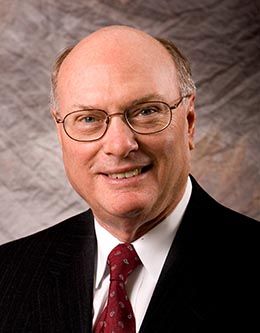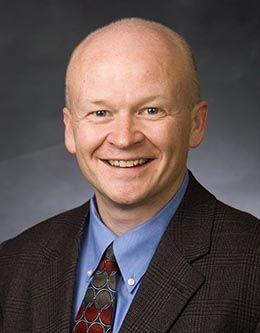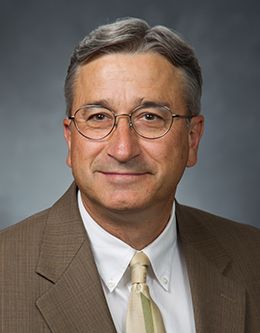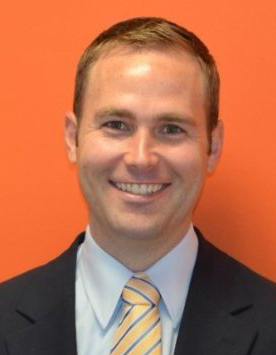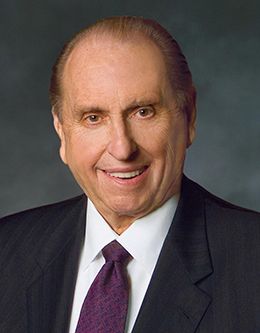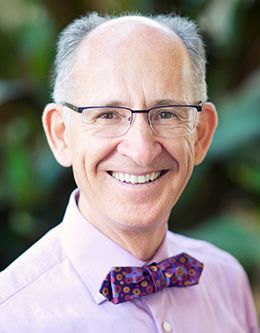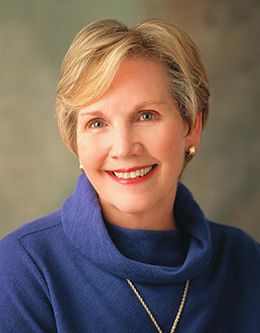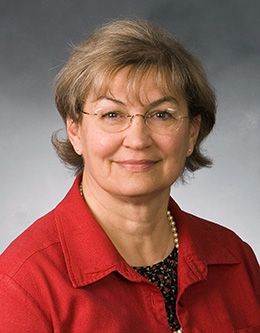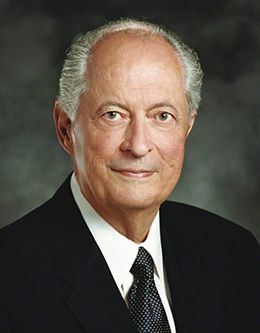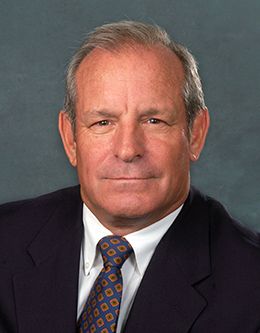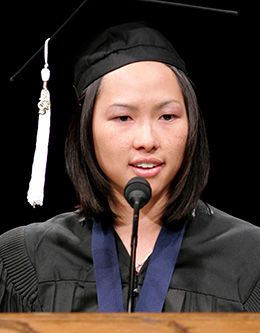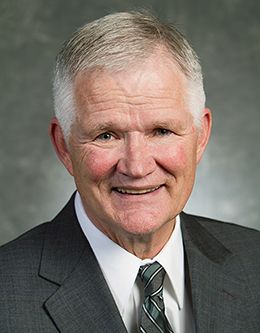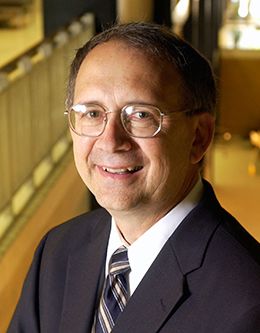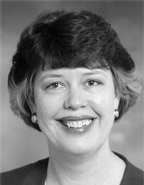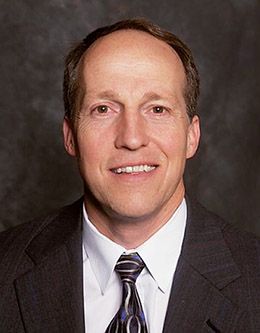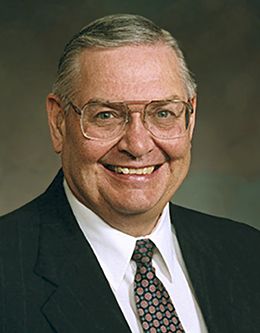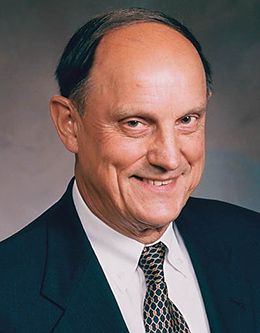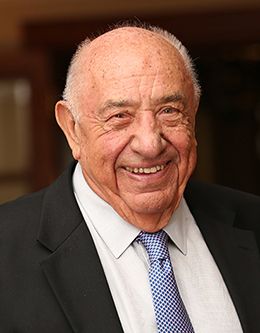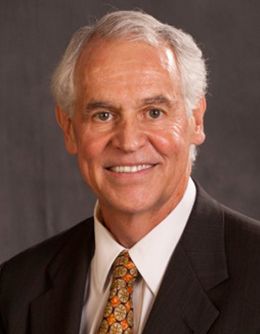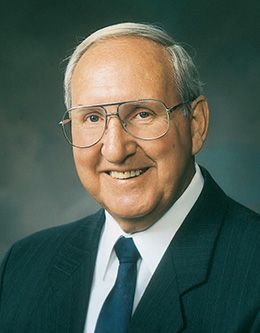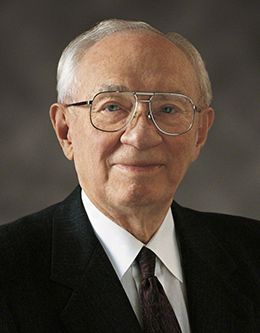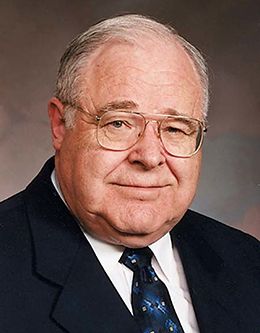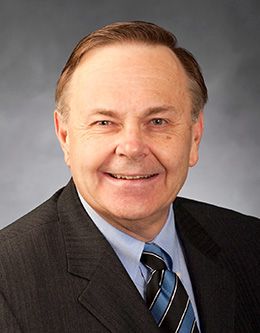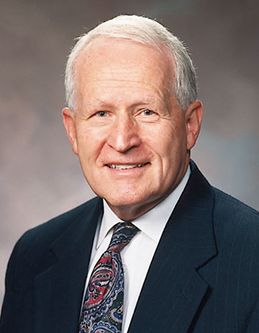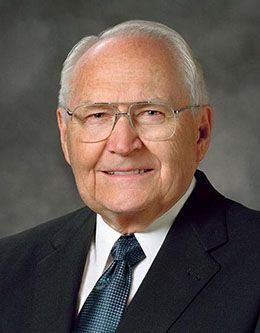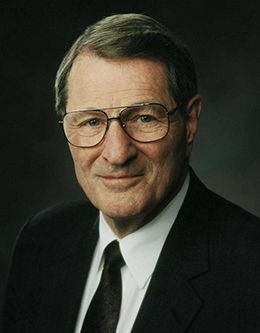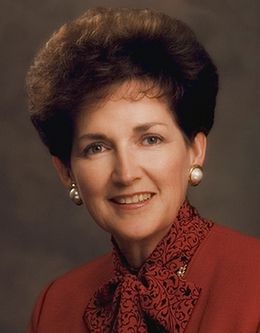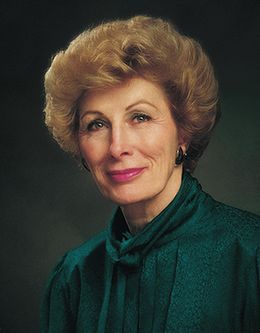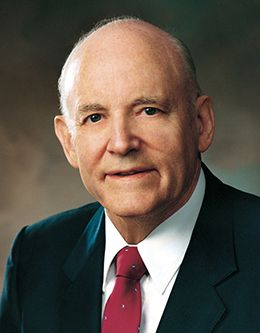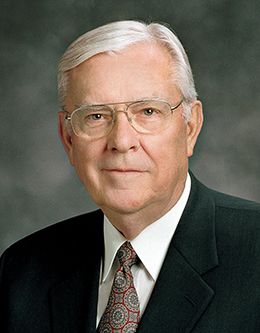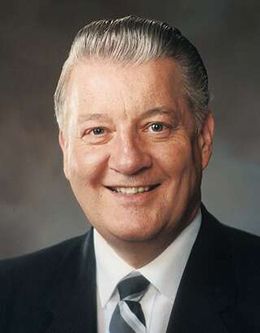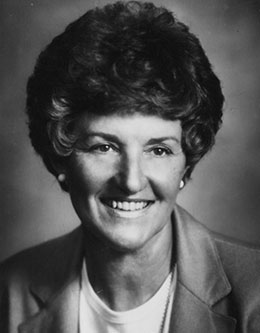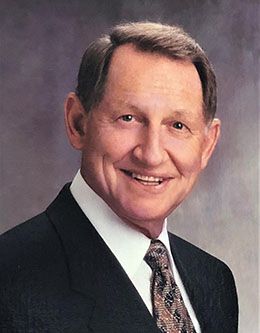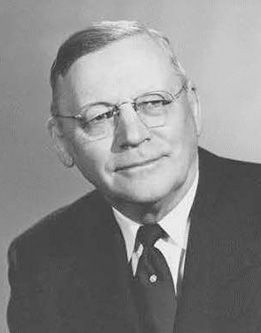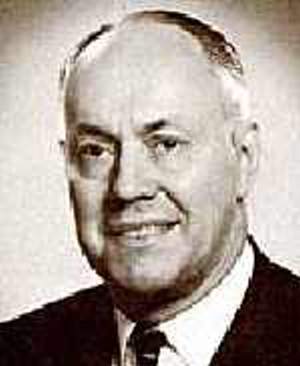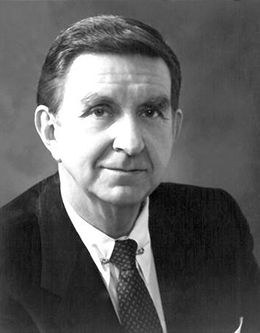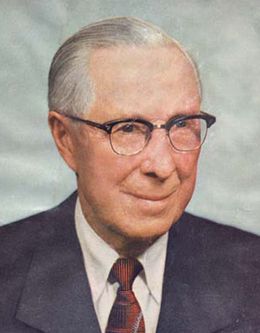
“The Most Desirable Above All Things”
Through consistent patterning, we can increase our ability to feel God’s love. He desires to include us in His work of salvation.
Grab a Shovel: Commencement 2025
In the snowdrifts of life, Christ expects us as both BYU graduates and disciples to grab a shovel—to serve and lift those around us.
A Light to the World: The Paradox of the BYU Graduate Student
Even as students leave BYU, they are called upon to simultaneously maintain spiritual integrity and be a light to the world.
Banners for Discipleship
Wave flags of discipleship! Proudly carry the banners of peacemaker, understanding, the restoration, and engagement.
Becoming God’s Peculiar Treasure
We become God’s peculiar treasure by obeying His voice and keeping His covenants, including those in the temple endowment and marriage.
“Flecks of Gold”
As we reach outward and upward, serving others and remembering that we are children of God, we can be like flecks of gold.
So Much to Do and So Little Time
There are many who suffer and there is so little time in each lifetime to help. We must be impatient to do whatever we can to love and serve.
“Seek Ye First the Kingdom of God”
Whatever our field of study or line of work, we must never forget to seek the kingdom of God first and use our education and skills for good.
Learn of Christ
We access Christ’s strength as we learn of Him by studying His words, developing meekness, and serving others.
Bring Healing Light into Your Life
When we feel burdened or overwhelmed, we can find healing light by recognizing miracles, putting in effort, and serving others.
Becoming Our Best BYU Self
In this commencement address, Elder Gong invites us to be our best BYU selves, committing to a life of faith, service, and discipleship.
Comfort in Christ
Life can be uncomfortable, but prayer, service, and temple attendance can help us find true comfort in the Savior.
The Hopeful Change in Global Health
Despite the progress we still need to make in global health, there are several hopeful changes in the world, and we can all contribute.
The Aims of a BYU Education
BYU offers education paired with spiritual experience, which enables—and obligates—us to love and serve those around us.
Making Something Out of You
The challenges and difficulties you face in your life are making something out of you through the effect you have on others.
Walking Each Other Home
"Walking each other home" means to reach out and serve those around us, whether we know them or not, in every way we can.
A Noble Responsibility for Good
We each have a noble responsibility for good, and we should not underestimate the amount of influence we can have if we are intentional.
Deepening Discipleship
Scott D. Whiting teaches how to deepen discipleship through obedience, endurance, and service to God and our fellowmen and women.
Your Duty to God and Your Fellowmen
I hope that you, like Harvey Fletcher, engage in educational work while having instilled in your very being your duty to God and your fellowmen.
Loving Our Neighbors
The story of the good Samaritan teaches why loving our neighbors—the ones who are in proximity—should be a primary focus in our lives.
Where Your Heart Is
Brent H. Nielson asks graduates to evaluate the condition of their hearts, for "where your heart is, there will your treasure be also."
Enter to Learn; Go Forth to Serve
President Worthen invites BYU graduates to reflect on BYU's slogan, Enter to Learn; Go Forth to Serve, as they begin a lifetime of service.
Keeping the Spiritual Lifeblood Flowing
Like walking when your legs are frozen, sometimes what we least want to do is the very thing we need to keep our spiritual lifeblood flowing.
Banishing All Shadows
In this commencement address, Holland declares that the light of God's love is powerful enough to banish all shadows and forces of darkness.
The Economics of Goodness
A honorary BYU doctorate recipient imagines a world governed by the economics of goodness, where our character can solve society's ills.
A Holier Approach to Ministering
Elder Neil L. Andersen explains how the shift from home and visiting teaching to ministering helps us rethink the way we love and serve.
Turning Enemies into Friends
Humanitarian aid is more than donating. Turning enemies into friends means looking for the "strangers" among us and providing relief.
Shape Your Life Through Service to Others
Elder Maynes warns us not to become selfish as we seek out our goals and dreams—our happiness will ultimately be found in the service of others.
Living a Life of Service and Love: What Goes Around Comes Around
The more service and love we give, the more we will find returned to us. Kirt Saville shares touching examples of this principle.
Listen, Lift, Rescue
If we are willing to listen, we can become instruments in the Lord's hands to lift and rescue others through an act of kindness or by sharing our talents.
“Go Forth to Serve”
To recall my experience, the BYU motto “Go forth to serve” has exerted boundless inspiration, courage, and guidance.
Hands Across the Sea
Your own happiness and future success as individual and as family achievers will rest upon your nurturing of the common good in all that you choose to do.
Joy at Graduation
Elder Oaks shares in the joy of August 2015 grads on graduation day and teaches them how to have continual joy through creativity, service, and the gospel.
Keeping Your Fingers on the PULSE of Service
We can keep our spiritual hearts healthy by serving, and incorporating the PULSE acronym can help us keep our service regular.
Pure Religion
Pure religion is about helping, serving, and caring. Practicing pure religion brings happiness as we reach out to our brothers and sisters.
Lost and Found
God loves each of his children and, through charitable service, we can help find each of His lost sheep and bring them back to the fold.
Constructing Spiritual Stability
To build a foundation of spiritual stability, build it on Christ through obeying, heeding counsel and learning, and serving others.
How Will You Serve?
A BYU education is about more than academics; it is also about learning how to serve.
Lifelong Learning and Continuous Service
Terry R. Seamons invites students leaving the university to be lifelong learners and to provide continuous service wherever life takes them.
Convenient Service
Service is tightly related to sacrifice. Making service convenient can be a challenge, but serving will bless our lives.
Small Things
We can make a difference now by committing small and simple acts of service to those within our reach.
Receiving
It sometimes takes humility to accept love from others, but as we do, we are blessed with more opportunities to serve and be served.
Saving Lives
Many people become rescuers by saving lives. Jesus Christ is our most significant rescuer, our Savior and from death and sin.
What Is Your Calling in Life?
What is your calling in life? Jeffrey A. Thompson instructs his audience how to seek the Lord's help in finding their individual life's purpose.
Tenacious Faith and Selfless Service
This address highlights how faith and service allow God to prepare the way—sharing inspiring stories from scripture and church history.
Why Giving Matters
Arthur C. Brooks explains why charitable giving is more than just a good idea; science and faith agree that it makes us better and happier.
The Soul of Kalaupapa
We can learn much from Kalaupapa, a leprosy settlement in Hawaii, and how the religious communities there respected and loved each other.
As We Now Go Forth
Matthew N. Daley speaks as a representative of his graduating class at BYU in 2008. He encourages his peers to reflect on how they have been blessed.
Guideposts for Life’s Journey
On life's journey, these four guideposts will lead us to our heavenly home: glance backwards, look heavenwards, reach outward, and press onward.
Responding to the Savior’s Invitation: “Come”
When we respond to the Savior's invitation to "come," we can feel the cleansing power of Christ's Atonement in our lives.
Personal Ministry: Sacred and Precious
To emulate the Savior in our personal ministry, we should open our hearts and daily help, uplift, and encourage others in small, simple ways.
Three Gates to Open
To achieve exaltation, we must open the gate of preparation, the gate of performance, and the gate of service on our life's journey.
The Power of One: Selfless Service
Even one person can make a difference when they choose to serve, as the Savior has shown us through His own selfless service.
Go Forth and Serve
Elder Hales praises April 2007 BYU grads for their hard work and counsels them to focus now on service, giving back, and helping others succeed.
Prepare to Make a Difference
The examples of three former BYU swimmers who made a difference in their respective spheres can inspire us to do the same.
More Than Knowledge
The most-needed service is rarely planned. Service gives purpose to knowledge, making the value of our education increasing and eternal.
The Lord’s Goods
The Lord has given talents or "goods" to each of us, which we can use to bless those around us and in turn become more like Him.
Beggars
We are all beggars. Because Christ has done so much for us, we must seek out those in need and help with compassion.
“Serve the Lord with Gladness” (Psalm 100:2)
The world's beauty is a gift to us just as everything else is. To repay Him for His goodness, we should serve Him.
“Serve the Lord with Gladness”
Make a joyful noise and serve the Lord with gladness—every talent and calling helps build God’s kingdom and brings joy in His service.
The Chance of Your Lifetime
Brent Romney, president of the BYU Alumni Association of the time, tells students of the chance of their lifetime to become involved by giving back to BYU.
Enter to Learn; Go Forth to Serve
A. Elaine Bond shares stories from her time as a trauma and disaster nurse, showing the importance of unity, service, and love toward others.
Selflessness Versus Selfishness
The War in Heaven was the original case of selflessness versus selfishness. We fight the same battle today, making decisions that determine our priorities.
“When Ye Are in the Service of Your Fellow Beings Ye Are Only in the Service of Your God”
Today, when many pick and choose religious teachings as if they were a "salad bar," serving God and our fellow men is more important than ever.
Learning the Healer’s Art
Elaine S. Marshall shares some insights she has gleaned about physical and spiritual healing and what it means to have the "healer's art."
This Ministry of Mobility
Elder Ballard, President Nadauld, President Bateman, faculty, ladies, gentlemen, and, most important, distinguished graduates, thank you very much for inviting me to be part of this special day. Since I didn’t go to college, this honorary degree is especially meaningful to me. Thank you. At a Senate hearing in Washington a few months ago, a senator and a cabinet secretary got into an argument over who was poorer growing up.…
In the Line of Service
“But charity is the pure love of Christ, and it endureth forever; and whoso is found possessed of it at the last day, it shall be well with him.” [Moroni 7:47]
Our Opportunities for Service
Recognizing the divinity in each of our brothers and sisters helps us to see opportunities for service in our relationships.
Continue to Have a BYU Experience
BYU graduates are encouraged to stay connected, serve, and replenish in order to continue to have a BYU experience in their lives.
The Formula for Going Out into the World
There are four things we can do to make room for the Savior in our lives: labor to learn, strive to serve, think to thank, and pause to pray.
“Things Too Wonderful for Me”
These stories and testimonies highlight the wonderful blessings of the gospel, of living righteously, and of loving one another.
Give Something of Yourself
The text for this speech is unavailable. Please see our FAQ page for more information.
Service: The Essence of True Religion
Scriptures and modern prophets teach that service is the essence of "true religion." When doing good, we should be characterized by privacy and generosity.
Love—A Manifestation from God
Love is truly is the most gentle and powerful force in the world. We have been given the key to loving and respecting differences.
Antidote for What Ails Us
Robert K. Goodwin, president and CEO of the Points of Light Foundation, asks all to join in the nationwide effort to get involved in service.
Church Responds to Crisis
Alexander B. Morrison presents information about how the Church responds to crisis and humanitarian need, especially in recent efforts for refugees.
Why Do We Serve at BYU?
Serving at BYU is unique because of both contractual and covenant relationships. We can choose to serve for a multitude of reasons, but the best is charity.
Private Service
Private organizations can take part in private service initiatives to influence the world for good and achieve positive business results.
“Go Forth to Serve”
Ben B. Banks shares meaningful stories of missionary work and service and admonishes students to go forth and serve others in their path.
Enter to Learn—Go Forth to Serve
The challenge contained in the motto of this university, to learn and to serve, represents the purpose of our mortal life.
“Called to Serve”
Each of us has been called to serve in God’s kingdom. That service will require all that we have but will reward us with all that He has.
“To Everything There Is a Season”
The season of judgment will come to each of us. As we prepare to harvest a good and fulfilling life, let us store up knowledge, honesty, and service.
Lessons That Have Helped Me
Although everyone on earth has a different experience, the lessons that have helped people lead a good life are universal.
Them and Us
When we think of people in terms of "them and us," we fail to love individuals. The Savior shows us how to love His children rather than judge a label.
No Less Serviceable
The home teacher is no less serviceable than the bishop, and the unsung heroes are just as important as the acclaimed and popular.
One Man Can Make a Difference
A mission president helps a discouraged missionary recognize one man can make a difference by reminding him of the Savior.
Choose to Serve
Though we live in a morally conflicted world, we can choose to serve the Lord. We are promised revelation, a sure witness, and an anchor of faith.
Investing for Eternity
Never will our time or efforts be better rewarded than when they are spent in service and kindness. This kind of investing for eternity should be our aim.
Preparing to Make a Difference
We are often filled with the desire to make a difference in the world. In order to have the impact we want, however, we must prepare spiritually.
Pioneer Legacy: Our Brothers’ Keepers
Brigham Young's admonition to the Saints to bring in the pioneers suffering on the plains was a reminder to us all: we are our Brother’s Keeper.
Forget Yourself
People are happier when they lose themselves in the service of others. Forget yourself and reach out. You will be happier when you do.
Go Forth to Serve
In the Church, what's important is not where we serve, but how. Prepare for, accept, and give your best to the callings you will receive.
Be the Best of Whatever You Are
As you seek to serve the Lord, focus less on the position of your calling and more on becoming and offering your best self.
Prepare for Useful Service
Antoine R. Ivins gives students spiritual and practical advice to prepare them for useful service in their community and the Church.
Blessings from the Welfare Program
Fast offerings and storehouses bless us as we share, serve, produce, provide, and help others in need through the Church Welfare program.
The Road to Tarshish
When God inevitably calls you to serve Him, will you respond as Samuel: "Speak, Lord, thy servant hearth?"—or as Jonah, taking the road to Tarshish?
Learning to Live and Help Each Other Live
Often it is necessary to make great sacrifices in the process of learning to live and help others live during trials, but reaching out is the Lord’s plan.


